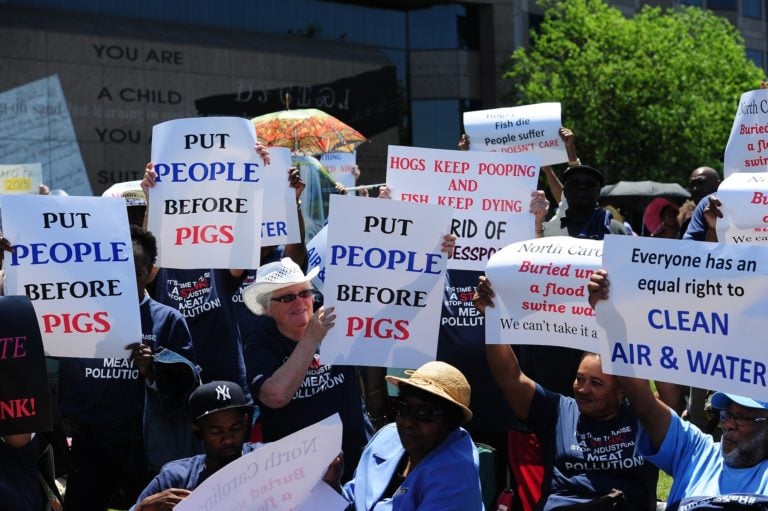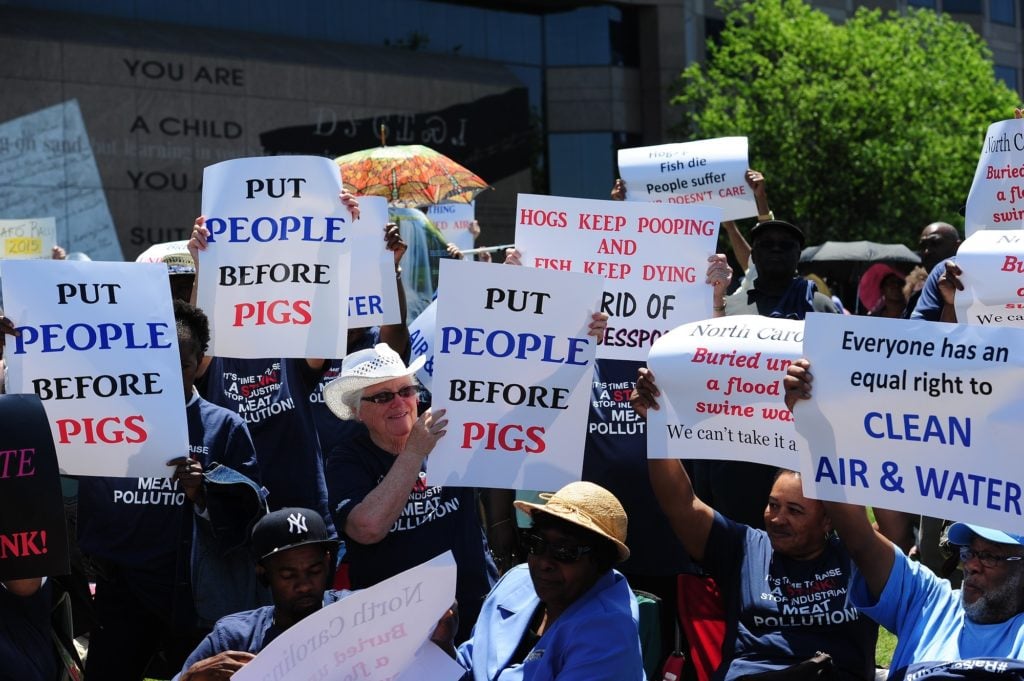
Since the passage of the Civil Rights Act in 1964, our federal government has had the great responsibility of protecting historically marginalized individuals and communities from discrimination of all kinds. However, environmental racism is one arena where our government has failed those that deserve its protection the most.
Title VI of the Civil Rights Act prohibits any recipient of federal funds from engaging in activities or programs that have an unjustifiable discriminatory impact. Despite volumes of documented instances of environmental injustice resulting from permitting decisions made by state government agencies, the U.S. Environmental Protection Agency’s Office of Civil Rights has never made a formal finding of discrimination.
In September 2014, Waterkeeper Alliance, with NC Environmental Justice Network and the Rural Empowerment Association for Community Help, represented by Earthjustice and UNC Center for Civil Rights, filed a complaint against NC Department of Environmental Quality for issuing a permit that allows for the operation of over 2,000 industrial hog facilities in violation of Title VI. The permit was issued without adequate protections for the African American, Latino and Native American communities that bear the burden of living next to these polluting facilities.
The highest concentration of industrial hog facilities in the world is located in eastern North Carolina, where animal feces is stored in open air and unlined pits and untreated waste is sprayed across the landscape. Communities of color are forced to endure horrendous odors, insects and vermin that ruin quality of life; air pollution that causes respiratory problems like asthma, especially in young children and the elderly; surface water laden with fecal bacteria like E. coli, and groundwater contaminated with nitrates.
Here in North Carolina, as in many places, our state agency tasked with protecting citizens from environmental harm has been captured by industry. They’ve heard the concerns from citizens for decades, but have done nothing to address their plight. Perpetuating these impacts without even considering the disparate impact to communities of color is not only a violation of the law, it is an insult to basic principles of human decency.
In every complaint received under Title VI, EPA has broken its own deadlines for initiating and completing an investigation into alleged violations of civil rights, and in some cases, investigations have remained open for 10 years or more. Now, EPA has launched a new initiative to reform its own policies in light of its horrendous enforcement record. However, many of the proposed changes to rules guiding Title VI enforcement run counter to EPA’s stated objectives.
For one, EPA plans to eliminate key deadlines for accepting and investigating complaints of civil rights violations. This absolves EPA of any accountability to respond to real threats in a timely manner, leaving citizens and communities in harm’s way. While EPA has never adhered to these deadlines, they provide an important reference point for all parties – complainants, EPA, and, if necessary, the courts – to make a determination as to whether a delay is justified or reasonable.
No one is suing EPA for marginal breaches of these deadlines. We didn’t sue EPA when it took 6 months instead of 20 days to make a basic jurisdictional determination as to whether or not to accept our complaint. And, to my knowledge, no one has ever sued EPA immediately after a deadline has lapsed. Instead of abolishing accountability, EPA should maintain the current deadlines and communicate openly with complainants if more flexibility is required to conduct a complex investigation. This will bolster EPA’s credibility and ensure that each complaint is met with timely and appropriate action.
Additionally, EPA proposes to eliminate its requirement to investigate every complaint. Allowing EPA the discretion as to whether it investigates a complaint at all is completely improper. Title VI enforcement is often the only avenue of recourse that communities of color have at their disposal for protection from environmental injustices. To deny complainants even a minimal investigation and finding as to whether or not discrimination has occurred is outrageous. EPA should take every complaint seriously out of respect for citizens lacking the political and economic clout to have their voices heard otherwise.
While EPA’s newfound interest in issues of environmental justice is welcomed, it should focus on taking steps toward assisting those oppressed by government, not creating loopholes that perpetuate discrimination.
